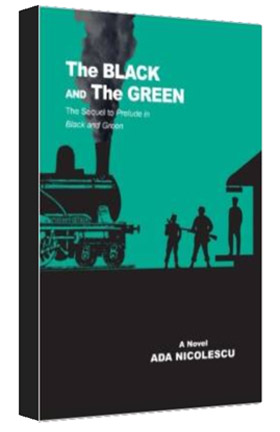Q&A
 Why after all these years did you decide to write about such a difficult period in Romanian history?
Why after all these years did you decide to write about such a difficult period in Romanian history?
I’ve been thinking about this book for quite a long time, perhaps since I was a teenager. When I was 13, my best friend’s mother swallowed sleeping pills and was in a coma. Her family couldn’t call for an ambulance, because telephones had been taken away from Jews. By the time they contacted some neighbors, the bombardments had started, and the ambulance couldn’t come. My friend’s mother died on that day. A number of things I witnessed happened to friends and to my immediate family. It was a little bit of my solace that I told myself that one day I will write about this …so pay attention.
There are so many little known details about what the Jews endured. How were you able to get this information?
Besides the obvious researching of various books and documents, I had several relatives who were involved in the resistance. Immediately after the war, there were some 200 Jews returning from Transnistria. Their homes had been destroyed, so they had been assigned to Wehrmacht barracks, where they were trying to determine their future. I was asked by relatives in the resistance to get certain information to assist them. In the course of meeting with these people, perhaps it was inevitable that at some point they could not help but talk about what they had endured in Transnistria. By the time I finished the interviews I had told myself that someday I would write about what I had heard. The experience led me to a desire to give a voice to the Jews who had fought so valiantly for the resistance. The fact that this aspect of what had happened in Romania was not known made me somehow feel an obligation to disclose it and to bear witness. It also made me wonder if there were other aspects of the resistance that had been obscured. Long before I actually sat down and started writing the book, I had been accumulating books and pursuing information for many years. My ear was always open to what I could get.
What do you consider to be the book’s major themes?
The resistance of the Jews and their will to survive despite constant persecution is the book’s driving force. The other major theme, in conjunction with the first, is how, unlike the organized Nazi model, the way in which the Final Solution was implemented in Romania was extremely arbitrary. There was no coherent plan. Whatever way was used to handle the Jewish “problem” was very much left to the discretion of the local authorities.
Many factions are shown to be vying for power. Do you see parallels between them and countries with conflicting interests today?
Unfortunately, very much so. I see the divisive struggle for power going on for years in many parts of the world. Often, the competition between rivaling tribes for supremacy is leading to terrible crimes against humanity.
“The Black and The Green” follows the Stein family through the War. Is it necessary to have read “Prelude in Black and Green” to understand what happens?
You get a more complete picture of who the Steins were and understand the events better if you read Prelude in Black and Green, but all history is on a continuum. The events in this book, like all events in the past, are but one chapter in the total spectrum of things.
Having lived in Romania during the time the book takes place, was it difficult emotionally, after all these years, for you to write it?
On the one hand, it was a relief to externalize things that had been sitting inside me for so long. At the same time, it was also very painful, because I had to transport myself back into these situations. When I was putting these events into words, it was impossible not to feel the horror of what was happening. At times it seemed so real, there were moments I got confused about where I was, even after I got up from my desk.
What do you want people to take away from this book?
I want my readers to know that important and tragic events took place in far away and largely unknown parts of the continent, and how courageous and remarkably resilient the Jewish community was in the face of them. Not accepting what was happening was a key to their survival. Too often, Jews have been accused of being passive and of letting themselves be driven to the ovens. They’ve been told, “You let yourselves be lead like sheep to slaughter. You deserve what happened to you.” I wanted people to know that this wasn’t so. Largely because of the underground resistance, 300,000 Romanian Jews did survive. I hope The Black and The Green, will help people realize that it is possible not only to cope with devastating experiences, but also that we can grow stronger and be enriched by them.

Leave a Reply